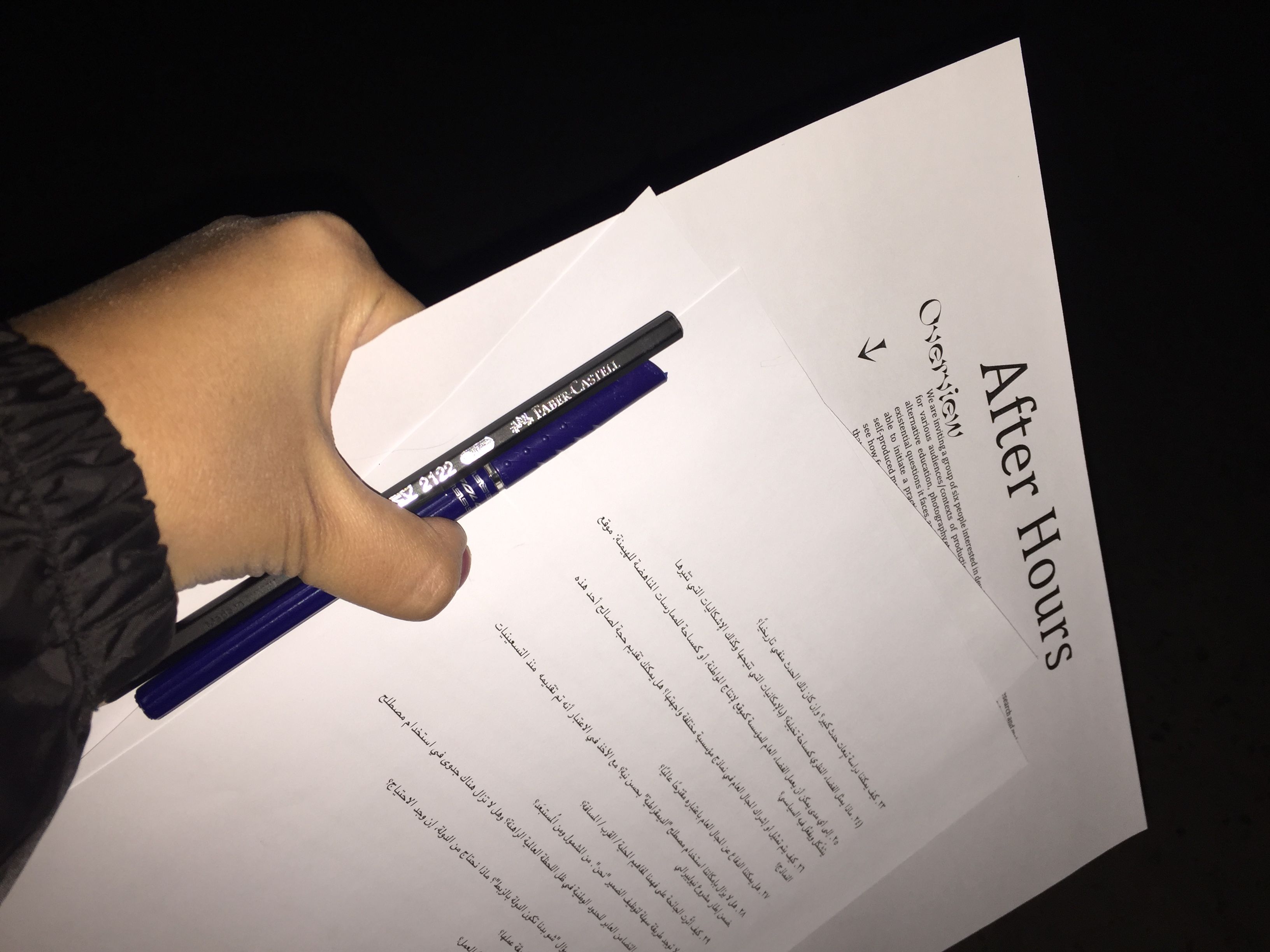
This residency started from a place of thinking about how art and cultural institutions signify possibilities or limitations. Naturally, the premise called for defining certain aspects of this conversation in terms of working with/within an institution both contextually (conditional/circumstantial scope of experience with institutions) and personally (aspirations for change and preferred work agreements). The beginning point was prioritizing the space for certain conversations that wouldn’t be prioritized in a studio residency and assess their aftereffects.
However, some elements were inspired by a studio residency's basic structure, mainly having space to work on a personal project amid an ongoing analysis of (some) contemporary context of art production. That was a way to understand the moments where strong connections to people or topics form and exceed the pre-defined scope of work, regardless of how flexible the institution might have been during the time those connections took to formulate. A strong bond can then be a placeholder to a temporary egalitarian space, where a figurative horizontal relationship exists between participants of this conversation, their subjects of work, and their respective contexts of production.
We took our time to think and ask questions: What is the institution doing? What do we mean when we say “changing how things are done”? In a situation where finding time for figuring out a challenge often corresponds to the ability to find space for its resolution, we worked towards a common ground that acknowledges the layers of work critical thinking invites. Rethinking definitions of “change” were talking points, and equally, active negotiations.
The residency’s structure and premise stated a way of being together that is parallel to (and a few steps away from) the urgency of delivering a coherent object. On the one hand, the common ground for participation did not involve responding to a particular theme. On the other hand, the tentative plan was not quite finalized when we began the residency. We can’t say delving into personal practice and being a participant in a discursive space are separate things, but we would like to acknowledge how they feel different. The method was to meet somewhere (conceptually, but online) around a reading or an exercise, with the shared understanding that revisiting personal interests or things we are preoccupied with/trying out for the first time is always an option.
There was often space to exit the conversation about the institution, but we kept returning to it. Perhaps, the conversation on institutional limitations would be a stepping stone to a less limited imagination. A specific logic would then formulate—not completely disconnected from the nature of the context, which denotes personal realities of people involved in this project but can assume a distance to test how far that would be possible. Sometimes, the institution was a personal interest, too: forced to consider it since it restricts agency or otherwise speculate it as a place to formulate a sense of belonging.
While talking about the problems of keeping up with the economy, we discover the space of agency that often gets decentralized due to the pressure of delivering outcomes in a neoliberal reality. We work in struggling cultural scenes that are constantly facing challenges yet always resurrected through works made around it/within it. Within the personal conversation, there is always a specificity in relating to different practices/contexts. In sharing those specific experiences, challenges gain form.
If, at the end of the day, an institution is a place where we can be together, then thinking of place makes it possible. Talking about a place begins it by way of conversational shift. How will this (whatever form of collectivity) look like/formulate? Maybe there’s something about this medium that we received/fell into that is really important to address. Miro as a place we can visit any time we want. Perhaps we will meet each other and perhaps not. There is a fear that comes up when sharing a studio, however “informal/not too serious” of a studio it might be. Returning to wonder if art can happen on the side of group work, without one using the other as a pretext for meaningfulness. Para: both almost and in-between. Seeing an entire practice within a prefix.
Participants: Ali Hussein Al-Adawy, Asha Athman, Ahmed Mongey, Noor Abuarafeh, Rama Sabanekh and Sanabel Abdelrahman.
https://online.daratalfunun.org/projects/afterhours_en/
This residency program was developed by Joud Al-Tamimi, Firas Shehadeh and Reem Marji in collaboration with Batool El Hennawy and as part of The Lab program at Darat al Funun in 2020.